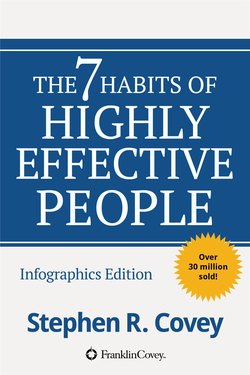Читать книгу The 7 Habits of Highly Effective People - Стивен Кови - Страница 14
На сайте Литреса книга снята с продажи.
ОглавлениеTHE POWER OF A PARADIGM
The 7 Habits of Highly Effective People embody many of the fundamental principles of human effectiveness. These habits are basic; they are primary. They represent the internalization of correct principles upon which enduring happiness and success are based.
But before we can really understand these Seven Habits, we need to understand our own “paradigms” and how to make a “paradigm shift.”
Both the Character Ethic and the Personality Ethic are examples of social paradigms. The word paradigm comes from the Greek word paradeigma. It was originally a scientific term, and is more commonly used today to mean a model, theory, perception, assumption, or frame of reference. In the more general sense, it’s the way we “see” the world—not in terms of our visual sense of sight, but in terms of perceiving, understanding, interpreting.
For our purposes, a simple way to understand paradigms is to see them as maps. We all know that “the map is not the territory.” A map is simply an explanation of certain aspects of the territory. That’s exactly what a paradigm is. It is a theory, an explanation, or model of something else.
A paradigm is the way you “see,”
interpret, or understand the world.
Suppose you wanted to arrive at a specific location in central Chicago. A street map of the city would be a great help to you in reaching your destination. But suppose you were given the wrong map. Through a printing error, the map labeled “Chicago” was actually a map of Detroit. Can you imagine the frustration, the ineffectiveness of trying to reach your destination?
You might work on your behavior—you could try harder, be more diligent, double your speed. But your efforts would only succeed in getting you to the wrong place faster.
You might work on your attitude—you could think more positively. You still wouldn’t get to the right place, but perhaps you wouldn’t care. Your attitude would be so positive, you’d be happy wherever you were.
The point is, you’d still be lost. The fundamental problem has nothing to do with your behavior or your attitude. It has everything to do with having a wrong map.
If you have the right map of Chicago, then diligence becomes important, and when you encounter frustrating obstacles along the way, then attitude can make a real difference. But the first and most important requirement is the accuracy of the map.
